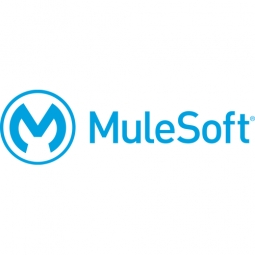公司规模
Large Corporate
国家
- Worldwide
产品
- MuleSoft Anypoint Platform
技术栈
- APIs
- eCommerce platform
实施规模
- Enterprise-wide Deployment
影响指标
- Productivity Improvements
- Customer Satisfaction
技术
- 应用基础设施与中间件 - API 集成与管理
- 平台即服务 (PaaS) - 连接平台
适用行业
- 零售
- 消费品
适用功能
- 销售与市场营销
- 商业运营
服务
- 软件设计与工程服务
- 系统集成
关于客户
ASICS is a global athletic footwear and apparel company that specializes in delivering the highest quality running shoes. The company is on a mission to improve runner performance and has a growing portfolio of seven brands worldwide. However, ASICS was facing a challenge with digital performance. The company had chosen a new eCommerce platform but was unable to connect disparate systems for its growing brands. As a result, ASICS was struggling to deliver a seamless and consistent customer experience and generated only a small percentage of revenue through eCommerce. The company recognized the need for a new approach to engage customers directly via digital channels and made eCommerce a priority.
挑战
ASICS, a global athletic footwear and apparel company, was struggling to deliver a seamless and consistent customer experience due to its inability to connect disparate systems such as order management and product management for the company's seven growing brands worldwide. The company generated only a small percentage of revenue through eCommerce and needed a new approach to engage customers directly via digital channels. As part of a new digital strategy to drive eCommerce, ASICS had to unify multiple systems across all brands, geographies, and channels. This required building a universal eCommerce platform to manage the global ASICS portfolio of brands, developing APIs to integrate with various Order Management Systems (OMS), product management systems, payment providers, email service providers, and legacy systems to access all the backend data, and migrating to the new eCommerce platform.
解决方案
ASICS utilized MuleSoft Anypoint Platform to build APIs that allowed the new eCommerce platform to access customer information, order status, real-time inventory, pricing, and all the data previously held in various siloes. In the first phase of the project, ASICS connected more than 10 critical product management systems to the eCommerce platform via MuleSoft. Every API-enabled connection developed through Anypoint Platform is a reusable component. For example, the ASICS Email API, developed during the first project, will be reused dozens of times as the eCommerce platform is rolled out globally. By leveraging MuleSoft, ASICS was able to simplify complex time-consuming data transformations as data from various sources was imported into the universal eCommerce platform.
运营影响
数量效益

Case Study missing?
Start adding your own!
Register with your work email and create a new case study profile for your business.
相关案例.
.png)
Case Study
Improving Vending Machine Profitability with the Internet of Things (IoT)
The vending industry is undergoing a sea change, taking advantage of new technologies to go beyond just delivering snacks to creating a new retail location. Intelligent vending machines can be found in many public locations as well as company facilities, selling different types of goods and services, including even computer accessories, gold bars, tickets, and office supplies. With increasing sophistication, they may also provide time- and location-based data pertaining to sales, inventory, and customer preferences. But at the end of the day, vending machine operators know greater profitability is driven by higher sales and lower operating costs.

Case Study
Improving Production Line Efficiency with Ethernet Micro RTU Controller
Moxa was asked to provide a connectivity solution for one of the world's leading cosmetics companies. This multinational corporation, with retail presence in 130 countries, 23 global braches, and over 66,000 employees, sought to improve the efficiency of their production process by migrating from manual monitoring to an automatic productivity monitoring system. The production line was being monitored by ABB Real-TPI, a factory information system that offers data collection and analysis to improve plant efficiency. Due to software limitations, the customer needed an OPC server and a corresponding I/O solution to collect data from additional sensor devices for the Real-TPI system. The goal is to enable the factory information system to more thoroughly collect data from every corner of the production line. This will improve its ability to measure Overall Equipment Effectiveness (OEE) and translate into increased production efficiencies. System Requirements • Instant status updates while still consuming minimal bandwidth to relieve strain on limited factory networks • Interoperable with ABB Real-TPI • Small form factor appropriate for deployment where space is scarce • Remote software management and configuration to simplify operations

Case Study
Digital Retail Security Solutions
Sennco wanted to help its retail customers increase sales and profits by developing an innovative alarm system as opposed to conventional connected alarms that are permanently tethered to display products. These traditional security systems were cumbersome and intrusive to the customer shopping experience. Additionally, they provided no useful data or analytics.

Case Study
How Sirqul’s IoT Platform is Crafting Carrefour’s New In-Store Experiences
Carrefour Taiwan’s goal is to be completely digital by end of 2018. Out-dated manual methods for analysis and assumptions limited Carrefour’s ability to change the customer experience and were void of real-time decision-making capabilities. Rather than relying solely on sales data, assumptions, and disparate systems, Carrefour Taiwan’s CEO led an initiative to find a connected IoT solution that could give the team the ability to make real-time changes and more informed decisions. Prior to implementing, Carrefour struggled to address their conversion rates and did not have the proper insights into the customer decision-making process nor how to make an immediate impact without losing customer confidence.









